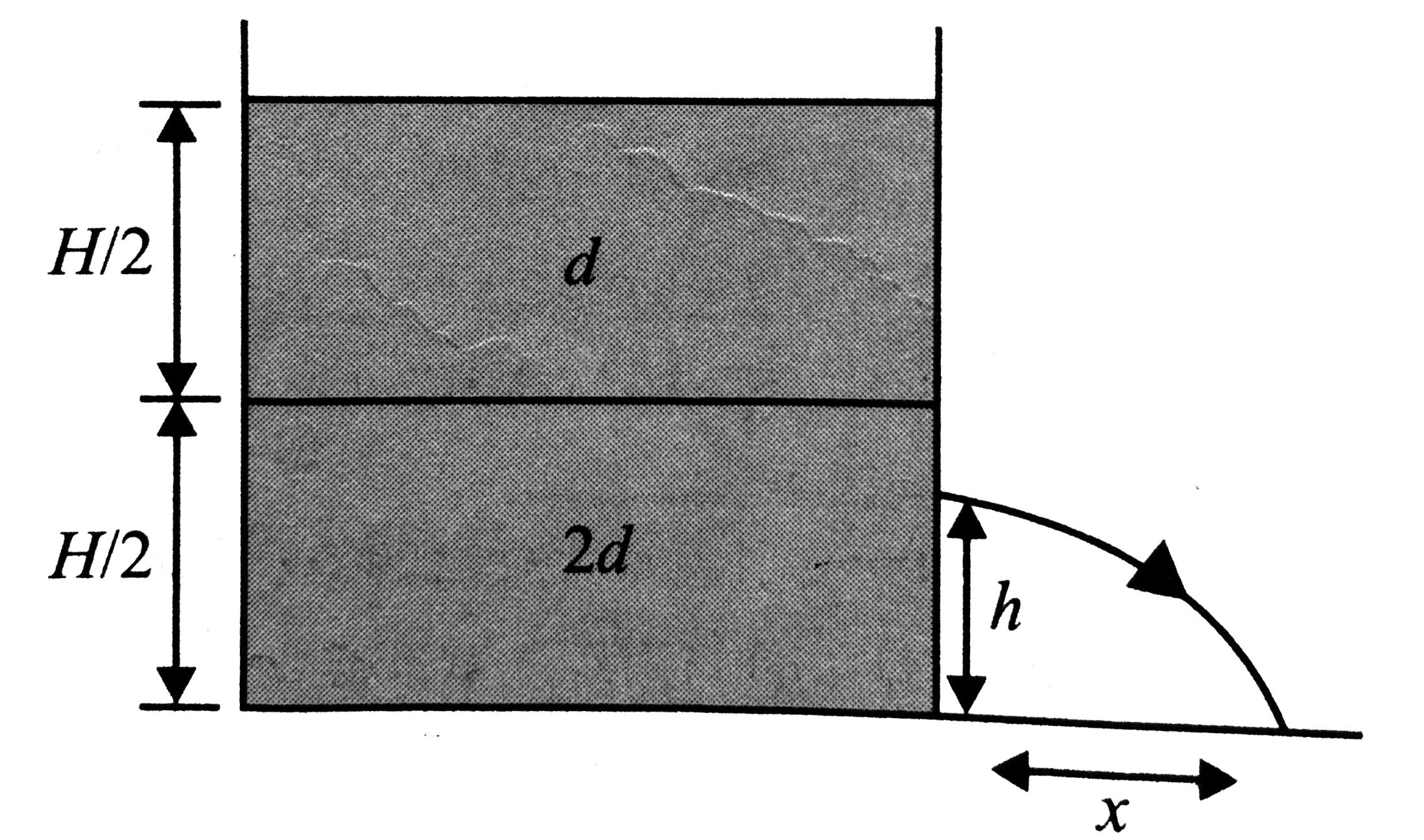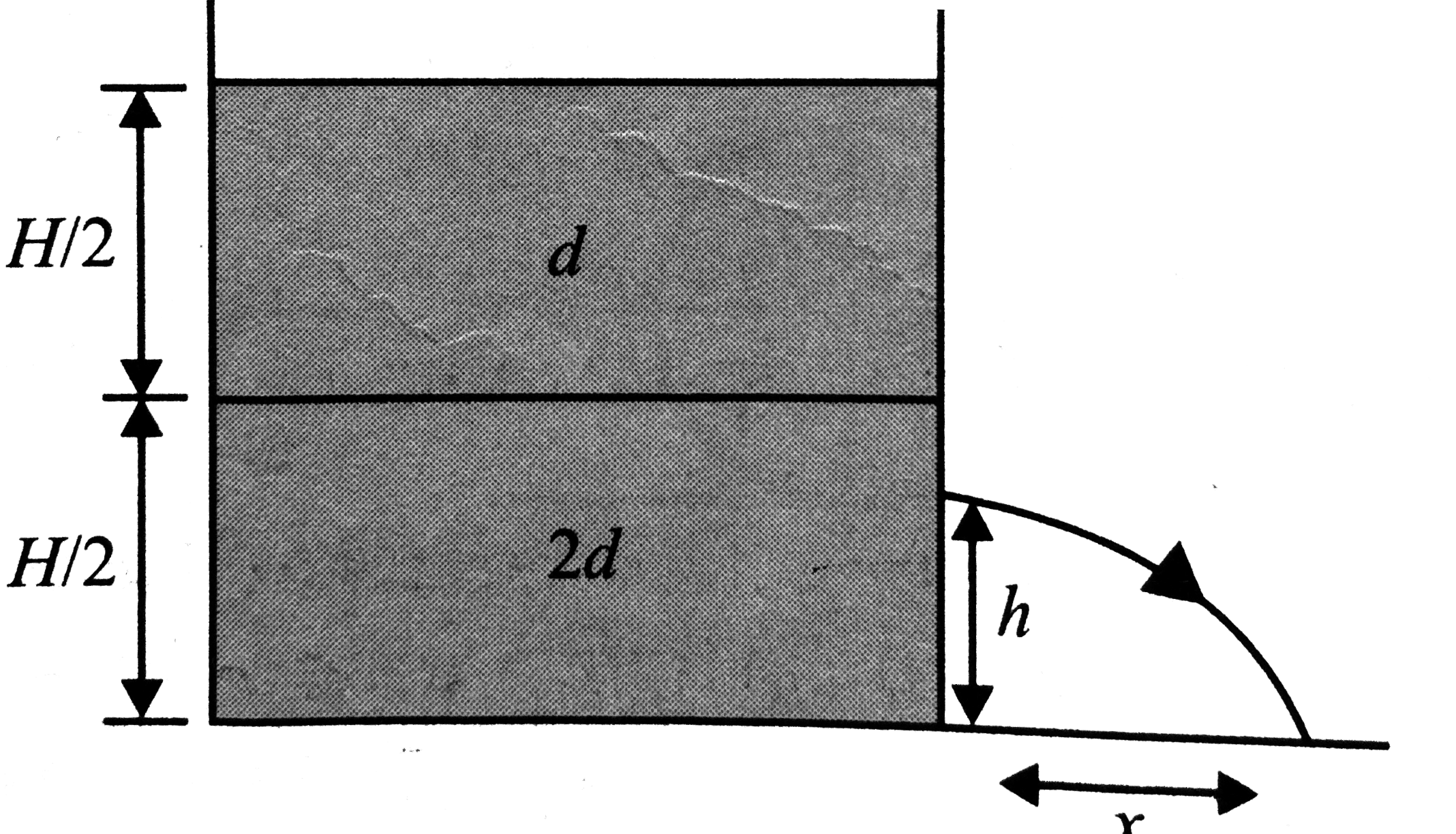Assertion : The blood pressure in humans is greater at the feet than at the brain.
Reason : Pressure of liquid at any point is proportional to height, density of liquid and acceleration due to gravity.
If both assertion and reason are true and the reason is the correct explanation of the assertion.
If both assertion and reason are true and the reason is not the correct explanation of the assertion.
If assertion ture but reason is false.
If the assertion and reason both are false.
The correct Answer is:A
Step by step video, text & image solution for Assertion : The blood pressure in humans is greater at the feet than at the brain. Reason : Pressure of liquid at any point is proportional to height, density of liquid and acceleration due to gravity. by Physics experts to help you in doubts & scoring excellent marks in Class 11 exams.
Updated on:21/07/2023Topper's Solved these Questions
- FLUID MECHANICSBook:ERRORLESS Chapter:FLUID MECHANICSExercise:Fluid Mechanics
Explore 19 Videos
- FLUID MECHANICSBook:ERRORLESS Chapter:FLUID MECHANICSExercise:Graphical Questions
Explore 5 Videos
- ELASTICITYBook:ERRORLESS Chapter:ELASTICITYExercise:Self Evaluation Test
Explore 11 Videos
- FRICTIONBook:ERRORLESS Chapter:FRICTIONExercise:MCQ S
Explore 125 Videos
Similar Questions
Knowledge Check
Assertion : The blood pressure in humans is greater at the feet than at the brain .
Reason : Pressure of a liquid is hdg .AIf both assertion and reason are true and reason is the correct explanation of assertion .BIf both assertion and reason are true but reason is not the correct explanation of assertion.CIf assertion is true but reason is false.DIf both assertion and reason are false .Assertion : The pressure at the bottom of the sea is lesser than that near the surface.
Reason : The pressure exerted by a liquid depends upon the depth of the liquid and density of the liquid.AIf both assertion and reason are true and reason is the correct explanation of assertion.BIf both assertion and reason are true but reason is not the correct explanation of assertion.CIf assertion is true but reason is false.DIf assertion is false but reason is true.Fluids at rest exert a normal force to the walls of the container or to the sruface of the body immersed in the fluid. The pressure exerted by this force at a point inside the liqid is the sum of atmospheric pressure and a factor which depends on the density of the liquid, the acceleration due to gravity and the height of the liquid, above that point. The upthrust acting on a body immersed in a stationary liquid is the net force acting on the body in the upward direction. A number of phenomenon of liquids in motion can be explain by Bernoulli's theorem which relates the pressure, flow speed and height for flow of an ideal incompressible fluid.
A container of large uniform corss sectional area. A resting on a horizontal surface holds two immiscible, non viscous and incompressile liquids of densities d and 2d, each of height H/2 as shown in the figure. The lower density liquid is open to the atmosphere having pressure P0.
Situation I:
A homogeneous solid cylinder of length L(L<H/2). cross sectional area A/5 is immersed such that it floats with its axis vertical at liquid -liquid interface with lenght L/4 in the denser liquid.
The total pressure at the bottom of the container isA(H2+L4)dgBP0+(3H2+L2)dgCP0+(H+L4)dgDP0+(3H2+L4)dg
Give explanations :
The blood pressure in humans is greater at the feet than at the brain.
View SolutionExplain why
(a) The blood pressure in humans is greater at the feet than at the brain
(b) Atmospheric pressure at a height of about 6km decreases to nealy half of its value at the sea level through the height of the atmosphere is more than 100km
(c) Hydrostatic pressrure is a scalar quantity even though pressure is force divided by area.
View SolutionExplain why (a) the blood pressure is humans is greater at the feet than at the brain.
(b) Atmospheric pressure at a height of about 6 km decreases to nearly half its value at the sea level through the 'height' of the atmospheric is more than 100 km.
(c) Hydrostatic pressure is a scalar quantity even though pressure is force divded by area , and force is a vector.
View SolutionFluids at rest exert a normal force to the walls of the container or to the sruface of the Body immersed in the fluid. The pressure exerted by this force at a point inside the liqid is the sum of atmospheric pressure and a factor which depends on the density of the liquid, the acceleration due to gravity and the height of the liquid, above that point. The upthrust acting on a body immersed in a stationary liquid is the net force acting on the body in the upward direction. A number of phenomenon of liquids in motion can be explain by Bernoulli's theorem which relates the pressure, flow speed and height for flow of an ideal incompressible fluid.
A container of large uniform corss sectional area. A resting on a horizontal surface holds two immiscible, non viscous and incompressile liquids of densities d and 2d, each of height H/2 as shown in the figure. The lower density liquid is open to the atmosphere having pressure P0.
Situation I:
A homogeneous solid cylinder of length L(L<H/2). cross sectional area A/5 is immersed such that it floats with its axis vertical at liquid -liquid interface with lenght L/4 in the denser liquid.
The density of the solid is
View SolutionThe absolute pressure at a depth h below the surface of a liquid of density ρ is [Given Pa = atmospheric pressure, g = acceleration due to gravity]
View Solution

